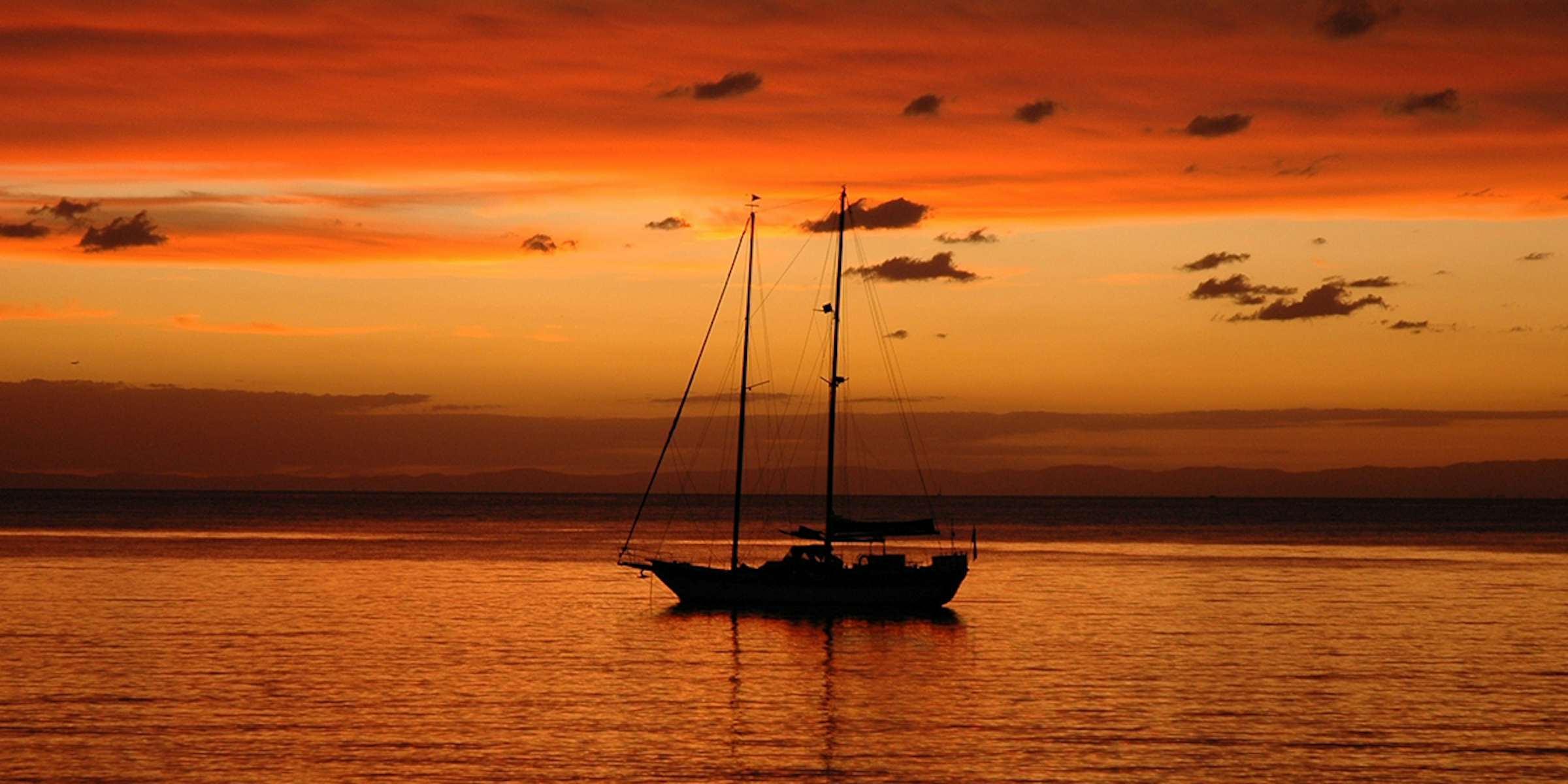
Boating after dark
The sun sets. Darkness creeps in. Your surroundings disappear. How do you feel? Do you feel confident navigating your boat without the assistance of the light of day?
Many boaties will acknowledge this can be a daunting situation to be in, however, with the right knowledge and equipment it doesn’t have to be a formidable experience. Get that know-how and a night out on the water can be wonderfully rewarding - magical even.
So how to equip and prepare yourself?
“One of the most important things to remember when boating at night is to stay within your comfort zone. Drop your speed, give things a wider berth if necessary and take a cautious approach. No matter what type of equipment you have onboard, you will never have the same visibility at night as during the day.” So say the wise writers at Boating Education.
Navigation lights are an integral part of the “equipping yourself for night boating” equation. In the same way that cars are required to have headlights, taillights, and indicators, proper navigation lights are also necessary when boating. It is important to note, however, that requirements differ dependent on what sort of boat you have. This depends on whether your boat is power-driven or a sailing vessel, and on its size.
These lights carry important messages. For example, they indicate what direction a vessel is traveling in, what sort of vessel it is, its approximate length, and if you are the give way or stand vessel. And if you see a flashing light, don’t presume it’s a navigation mark - it could be a high-speed ferry!
To learn whether you need a white, green, or red light and where on your boat it needs to be, then visit this site. To really know what you are doing at night, Coastguard Boating Education's Boatmaster course will help you gain these skills and give you more confidence boating at night.
The all-knowing Discover Boating site recommends those contemplating night navigation take on board the following pointers:
10 Tips for Boating at Night
- Slow down, visibility is reduced at night. Distances are harder to judge, obstacles are difficult to see, and moisture and temperature changes create distortion. No matter what high-tech navigation equipment is on board, the first rule of night boating is to slow down.
- Share the lookout duties. If you have someone along, keep that second pair of eyes strictly on the horizon with a periodic 360-degree scan to ensure no one is coming up from behind or at an angle. If passengers want to be lookouts, use them - the more eyes the better.
- Tap into your preparations list. Before ever setting out in the dark, you should have refreshed the batteries in your flashlights and headlamps, put binoculars close to the helm, and locate your personal floatation devices. You may consider wearing PFDs with an attached strobe light or glow stick in case someone goes overboard.
- Preserve your night vision. Dim all the onboard lights including courtesy lights, instrument and chart plotter backlighting, and cabin lights. Your night vision can take 20 minutes to adapt back to darkness after a flash of light.
- Don't use headlights or spotlights. Use docking lights only when arriving at your destination like at a dock or another boat.
- Look for the red and green. Red and green lights are forward on either side of the bow and a white light is aft at the stern. If you see both red and green, the boat is coming head-on. If you see white, the boat is ahead of you and/or moving away. If in doubt and you see red, stop. That means a boat is crossing your bow and it has the right of way.
- Listen up! Your hearing may seem more acute in the dark given you can’t rely on your eyes.
- Trust your navigation instruments. Your eyes can play tricks on you in the dark so if your chart plotter is normally trustworthy retain faith in it.
- Bring along a towel—for many uses, such as wiping a fogged windshield, or keeping yourself warm and dry.
- Dock with extra caution. Again, distances are distorted at night so only approach a dock as fast as you’re willing to hit it.
All of the above pointers are crucial as - while things like GPS units, chart plotters, radar, and thermal/night-vision scopes enhance safety - nothing replaces the human component when boating at night. Accurate navigation, lower speeds, eagle-eye lookouts, and safety precautions become much more critical while night-time boating.
Night-time boat operators should also be mindful of how low light affects people (for example, it takes the human eye up to 60 minutes to adjust from bright light to the most sensitive state in darkness.)
For more on all of the above, check out the Discover Boating website here.